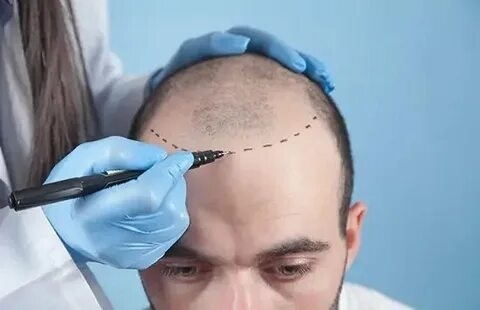Hair Transplant in Islamabad: The Path to Natural Hair Restoration

Hair has always been considered a symbol of confidence, charm, and identity. Unfortunately, issues like genetic baldness, stress, medical conditions, and unhealthy lifestyle habits lead many people to experience hair thinning or even complete baldness. While hair loss is a natural part of aging for some, it can deeply affect self-esteem and social confidence for others. Fortunately, medical advancements offer a reliable solution of hair transplant.
The capital of Pakistan has rapidly become a hub for modern hair restoration procedures. With state-of-the-art technology, skilled specialists, and internationally recognized practices, hair transplant in Islamabad provides an ideal environment for anyone seeking a permanent solution to hair loss. This comprehensive guide will help you understand what a hair transplant involves, why Islamabad is a leading destination for it, the techniques used, and what patients can expect from the process.
Understanding Hair Transplantation
A hair transplant is a surgical procedure that redistributes healthy hair follicles from a donor site usually the back or sides of the scalp to bald or thinning areas. Once transplanted, these follicles continue to grow naturally, producing permanent and natural-looking hair.
The two most commonly used methods in Islamabad are:
-
FUT (Follicular Unit Transplantation):
A strip of skin containing hair follicles is removed from the donor area. The follicles are then separated and implanted in the thinning region. -
FUE (Follicular Unit Extraction):
Individual follicles are extracted directly from the donor site using micro-punches and implanted into the recipient area. This method is less invasive and leaves minimal scarring compared to FUT.
Both approaches are widely practiced in Islamabad, with the choice depending on factors like hair condition, patient preference, and the surgeon’s recommendation.
Why Islamabad is Becoming a Leading Destination
Over the years, Islamabad has earned a reputation for offering advanced cosmetic and hair restoration services. Here’s why:
-
Highly Qualified Professionals
Surgeons in Islamabad are known for their expertise and often receive training from international institutions, ensuring patients receive world-class care. -
Advanced Technology
Clinics in the city are equipped with modern tools and devices that help achieve precise, natural-looking results. -
Safe and Hygienic Environment
Hygiene standards and patient care protocols in reputable clinics meet international guidelines, making procedures safer. -
Increasing Awareness
With growing awareness of hair restoration solutions, people in Islamabad are more open to treatments, driving clinics to constantly update their techniques and services.
Step-by-Step Procedure
If you are considering a hair transplant in Islamabad, it’s helpful to know what the journey looks like:
-
Consultation – A specialist examines the scalp, reviews medical history, and recommends the best method for transplantation.
-
Preparation – The donor area is cleaned, trimmed, and numbed with local anesthesia.
-
Extraction – Depending on the chosen method, follicles are carefully extracted from the donor site.
-
Graft Preparation – The harvested follicles are sorted and prepared under a microscope.
-
Implantation – Tiny incisions are created in the bald areas, and follicles are implanted with precision.
-
Post-Surgery Care – Patients receive detailed aftercare guidelines to ensure proper healing and healthy growth.
Recovery Timeline
Recovery is usually smooth, and patients can return to routine activities within days. Here’s what to expect:
-
Days 1–7: Mild swelling or redness is normal. Scabs form around follicles but fall off naturally.
-
Week 2–4: Temporary shedding of transplanted hair occurs, which is part of the natural cycle.
-
Months 3–6: New hair begins to grow.
-
Months 12–18: Full results are visible with dense, natural-looking hair.
Benefits of Hair Transplant in Islamabad
Opting for this procedure offers several life-changing advantages:
-
Permanent Solution: Transplanted follicles continue to grow naturally for a lifetime.
-
Natural Appearance: With modern techniques, results look completely authentic.
-
Low Maintenance: No special care is needed once the transplanted hair grows fully.
-
Boosted Confidence: Restoring a youthful hairline significantly improves self-esteem.
Who is a Suitable Candidate?
A hair transplant is not suitable for everyone. Ideal candidates usually:
-
Have stable hair loss patterns.
-
Possess a sufficient donor area with healthy follicles.
-
Are in good general health.
-
Have realistic expectations about outcomes.
Those with medical conditions or unstable hair loss may need to address underlying causes first.
Myths About Hair Transplantation
Despite its popularity, several myths still exist:
-
Myth 1: Hair transplants are painful.
Fact: Local anesthesia ensures the procedure is virtually painless. -
Myth 2: Results look artificial.
Fact: Modern methods ensure transplanted hair looks completely natural. -
Myth 3: Results appear instantly.
Fact: Full results take up to a year as hair grows gradually.
Choosing the Right Clinic in Islamabad
Selecting the right clinic is critical for success. Before deciding, consider the following:
-
The surgeon’s credentials and experience.
-
Availability of advanced equipment.
-
Patient reviews and before-and-after galleries.
-
Personalized consultation and realistic guidance.
Doing thorough research ensures you make an informed choice and achieve the results you desire.
Final Thoughts
A hair transplant is much more than a cosmetic treatment—it’s a journey toward self-confidence and a youthful appearance. With modern technology, expert surgeons, and growing awareness, the capital city has become a reliable destination for anyone struggling with hair loss.
If you are ready to regain your natural hair and confidence, exploring the options available in Islamabad can be the first step toward a transformation that lasts a lifetime.
- الألعاب
- Religion
- Party
- Networking
- Music
- Literature
- Art
- Health
- Gardening
- Shopping
- Food
- Fitness
- Film
- Drinks
- Dance
- Crafts
- Causes
- Wellness
- Devotional Reflections
- Bible Study & Scripture Insights
- Prayer & Worship
- Christian Living
- Spiritual Growth & Discipleship
- Testimonies & Personal Journeys
- Christian Theology & Doctrine
- Church Calendar & Liturgical Seasons
- Christian Service & Mission
- Gardening
- Health
- الرئيسية
- Literature
- Networking
- أخرى



